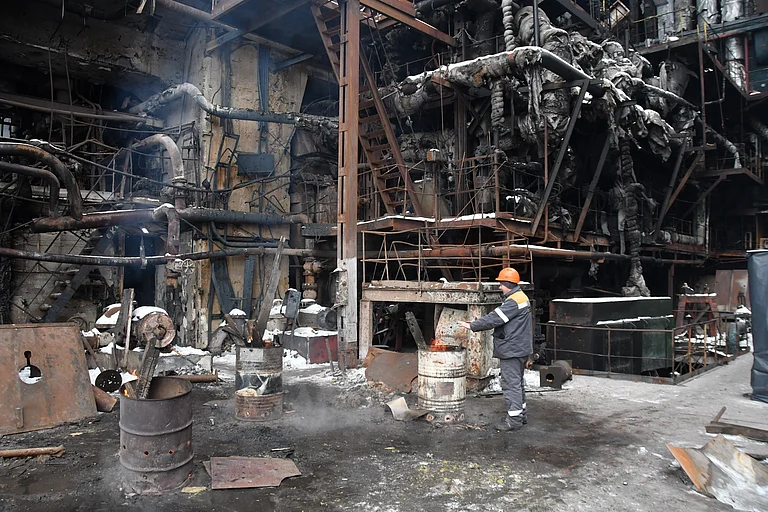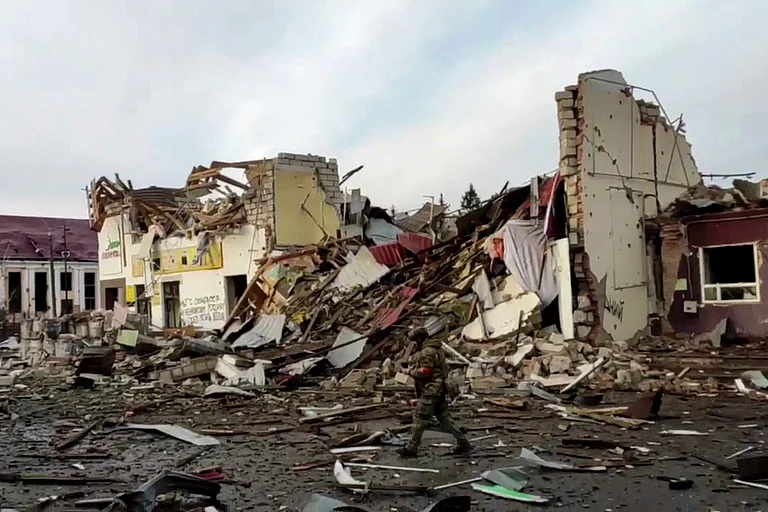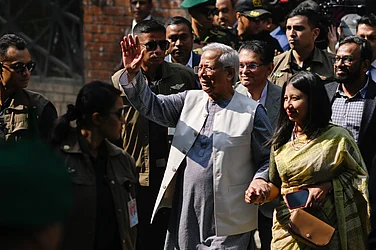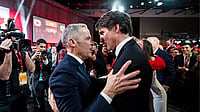In the early hours of August 6, Ukrainian troops moved into Russia’s Kursk Region and carried out its first major attack since the war with Russia began in 2022. Taking Russia and the world by surprise, Ukraine is now working towards driving Russian troops out of Kyiv following its first cross-border move since February 24, 2022.
With Ukraine now in control of 1,175 square kilometers in Kursk, which is almost the same amount as Russia seized in Kyiv at the start of invasion, the Eastern European country seems to be taking back the narrative of the war.
As per the latest data from the Ukrainian military command, Kyiv is in control of around 74 settlements in the area. Ukrainian President Volodymyr Zelenskyy, who confirmed military presence in Kursk on Monday, stated that "despite difficult, intense fighting, the advance of our forces in the Kursk region continues."
As per US President Joe Biden, as Ukraine continues to pound missiles and drones into the Kursk region, the Ukrainian provocation now poses a “real dilemma" for five-time Russian President Vladimir Putin.
Russia Caught By Surprise
Russian President Vladimir Putin vowed a "worthy response" to Ukraine's invasion of Kursk. While Russia has stated that it was able to counter Ukrainian troop movement and drone attacks in the territory, it was visible that Moscow was caught by surprise.
Russian state media showed Putin reprimanding military, security and local government officials on August 12, the same day Ukraine confirmed its presence in the region.
Despite Ukraine's troops running low and urgent pleas for weapons, the incursion of Kursk brings forward a harsh reality for Russia that it, too, can be invaded by a neighbour.
What's Next For The War?
Ukraine's cross-border attack in Kursk comes months after the peace talks in Switzerland (where Russia was not invited) and is now expected to escalate tensions between Moscow and Kyiv, which may increase the scale of the war.
Apart from further escalation, Zelenskyy is preparing for a second round of peace talks in Switzerland and has extended a hand of participation for Russia.
In the first round of talks in June, Russia was not invited and refused to participate, a move which was condemned by many Putin allies, who stated that in order for peace, both parties need to be present at the table.
As per experts, Ukraine moved into Kursk with three goals in mind - to boost the morale of the nation and its troops fighting in the war; to prove to the West its merit for more weapons and military backing; and to divert Russian troops from the front line and ultimately push them back into their own territory.
However, as the invasion goes on, Ukraine's troops are expected to tire out and with supply lines running thin, chances of effective response to any Russian counter-attacks may be reduced.
Speaking to The Economist, Konrad Muzyka, a military analyst with Rochan Consulting, believes that Russia maybe planning an "asymmetrical response, such as a rocket barrage against the government quarter in Kyiv," rather than deploying its troops from the Donbas region to Kursk.
With Russia and Ukraine crossing 900 days of fighting and the unprecedented attack in Kursk, tensions remain high, pushing other countries into alert mode for a increased Russian aggression in the continent.



























